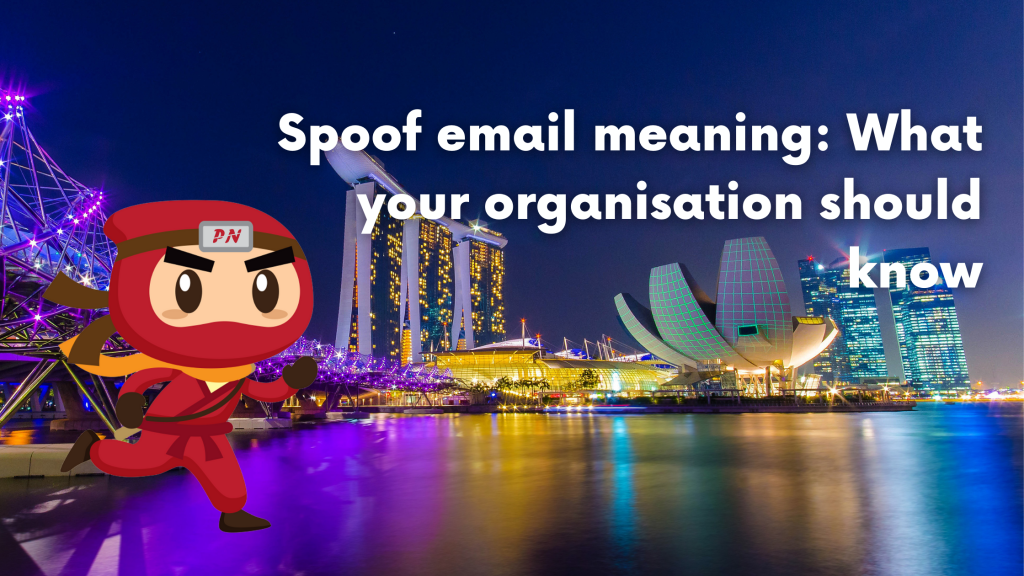
Email spoofing is a tactic employed in spam and phishing campaigns to deceive consumers into believing a communication originated from a person or organization they know or can trust. In spoofing attacks, the sender falsifies email headers such that client software shows the fake sender address, which the majority of users accept as true.
Users notice the bogus sender in a message’s header until they study it more thoroughly. If they recognize the name, they are more likely to believe it. So they will click on fraudulent links, open attachments containing malware, submit sensitive data, and even wire funds.
Email spoofing is possible because of the way email systems are designed. Where outgoing email servers cannot verify whether the sender address is legitimate or spoofed, the client application assigns a sender address to outbound messages.
Luckily, recipient servers and antimalware software can aid in the detection and filtering of spoofed emails. Many email providers do not have security measures in place, which is a real problem. But, email headers can still be examined to see if a sender’s address has been faked.
The objective of email spoofing is to deceive people into believing the email is from someone they know and trust, typically a colleague, vendor, or brand. Taking advantage of the recipient’s trust, the attacker requests that he or she disclose information or do some other action.
As an example of email spoofing, an attacker could create an email that looks like PayPal sent it. The notification informs the user that their account will be suspended if they do not click a link, log into the website, and change their password. Suppose the user is successfully duped and enters credentials. In that case, the attacker now has the credentials necessary to authenticate into the targeted user’s PayPal account and potentially steal money from the user.
Complex attacks target financial employees and use social engineering and online reconnaissance to deceive a user into transferring millions of dollars to an attacker’s bank account.
Also Read: Guarding against common types of data breaches in Singapore
Since the beginning of the year, at least 149 individuals have been victimized by a scam employing spoofed work emails, resulting in losses of at least $70.8 million.
The police said in a statement released on May 21, 2022, that the scammers would mimic the victims’ coworkers, business partners, or suppliers using hacked email accounts or email addresses.
Frequently, these counterfeit email addresses would have misspellings or letter substitutions that were not immediately apparent. Emails were sent to victims advising them of a change in the bank account number and requesting that payments be made to other bank accounts.
The victims would send funds to the new accounts after being misled into believing the emails were legitimate. In some instances, victims were instructed to purchase gift cards and present their superiors with the activation keys.
The first time the victims realized they had been duped was when they contacted their suppliers or superiors, who emphasized that neither a request nor payment had been issued.
A Data Protection Officer (DPO) oversees data protection responsibilities and ensures that organizations comply with the Personal Data Protection Act (PDPA). Furthermore, every Organization’s DPO should be able to curb any instances of data breaches as it is the officer responsible for maintaining the positive posture of an organization’s cybersecurity.
For instance, at Privacy Ninja, part of our scope of work is to conduct random email spoofing to test the awareness of employees. This is just one of the tactics employed by us to make sure that there will be no instance of accidental clicking of any link or attachments that could be a pathway for bad actors to penetrate the system.
DPOs complement the efforts of Organizations in making sure that the personal data collected and used is accurate. This is because when there is an instance that the obligation has been breached, DPOs ensure that a protocol for dealing with it has been established and can be employed.
As a consumer who provides my very own sensitive information to each organization I encounter or have a transaction with, I would feel safe if an organization would take the extra mile to ensure that my data is correct and concise as it affects me whenever a decision is made.
Also Read: The Singapore financial services and markets bill: Everything you need to know
Importance of Efficient Access Controls that every Organisation in Singapore should take note of. Enhancing…
Prioritizing Security Measures When Launching a Webpage That Every Organisation in Singapore should take note…
Importance of Regularly Changing Passwords for Enhance Online Security that every Organisation in Singapore should…
Comprehensive Approach to Data Protection and Operational Integrity that every Organsiation in Singapore should know…
Here's the importance of Pre-Launch Testing in IT Systems Implementation for Organisations in Singapore. The…
Understanding Liability in IT Vendor Relationships that every Organisation in Singapore should look at. Understanding…
This website uses cookies.